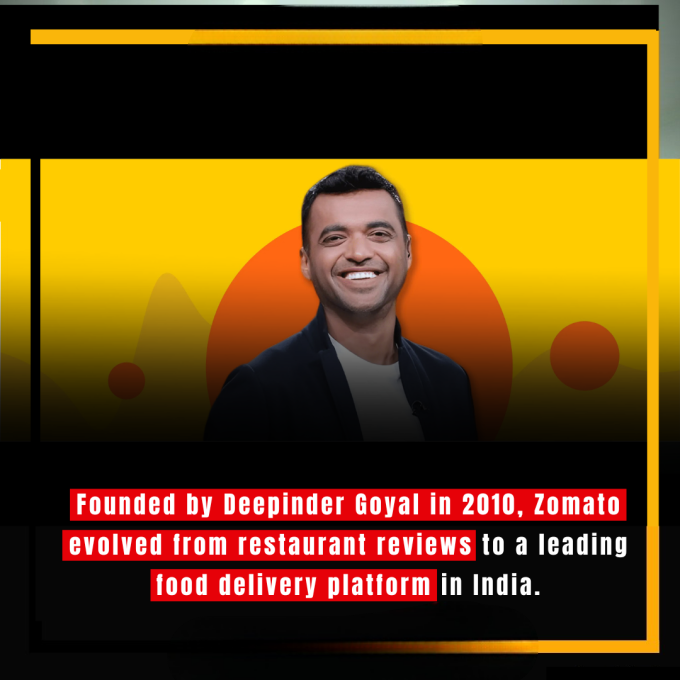Zomato, founded by Deepinder Goyal in 2010, has undergone a remarkable transformation from a simple platform for restaurant reviews to a dominant force in the foodtech industry, now synonymous with food delivery in over 1,000 cities across India. This evolution encapsulates a journey marked by relentless execution, innovative product development, and a distinct marketing strategy that resonates with the modern consumer.
Initially launched as a website designed to share restaurant menus and reviews, Zomato quickly gained popularity among food lovers. The platform empowered users to explore dining options, check out menus, and read reviews before making decisions. This early focus on user-generated content positioned Zomato as a trusted resource in a rapidly growing culinary market.
Recognizing the changing landscape of consumer preferences, Zomato made a strategic pivot in 2015 to enter the food delivery sector. This expansion not only diversified its offerings but also tapped into a burgeoning demand for convenience among urban dwellers. With this shift, Zomato capitalized on the growing trend of online food ordering, establishing itself as a key player in the competitive food delivery space.
Zomato’s success can be attributed to its unwavering commitment to execution. The company has consistently refined its services, launching programs like Zomato Gold (now Zomato Pro), which offered users exclusive discounts at partner restaurants. This loyalty initiative significantly increased customer engagement and incentivized repeat orders, strengthening Zomato’s market position.
Innovation has been another cornerstone of Zomato’s growth strategy. The company has heavily invested in technology, utilizing data analytics and artificial intelligence to enhance user experience. Features like personalized recommendations based on previous orders and real-time order tracking have streamlined operations and improved customer satisfaction. This dedication to crafting well-designed products distinguishes Zomato in a crowded marketplace.
Moreover, Zomato’s unique approach to marketing has played a crucial role in its brand identity. Known for its witty and relatable campaigns, the company has effectively harnessed social media to engage with its audience. By creating content that resonates with current trends and cultural phenomena, Zomato has built a strong connection with millennials and Gen Z consumers, fostering a loyal community around its brand.
The culmination of Zomato’s success came in 2021 when it transitioned into a public company, generating significant excitement and marking one of the most anticipated IPOs in India. This milestone not only reflects the company’s financial achievements but also its profound impact on the Indian food ecosystem. With a market capitalization in the billions, Zomato has become a household name, synonymous with food in India.
Looking ahead, Zomato faces the challenge of maintaining its growth trajectory in an increasingly competitive landscape. The rise of new entrants and evolving consumer expectations necessitate ongoing innovation and adaptability. However, with its strong brand equity and commitment to quality, Zomato is well-equipped to navigate these challenges.
In conclusion, Zomato’s journey from a restaurant review platform to a food delivery titan exemplifies the power of vision, execution, and innovation. By continually adapting to consumer needs, Zomato has transformed the way people dine out and order food, leaving a lasting mark on India’s culinary landscape. As it continues to expand its offerings, Zomato remains a beacon of success in the foodtech industry, showcasing the potential of digital transformation in the culinary world.









